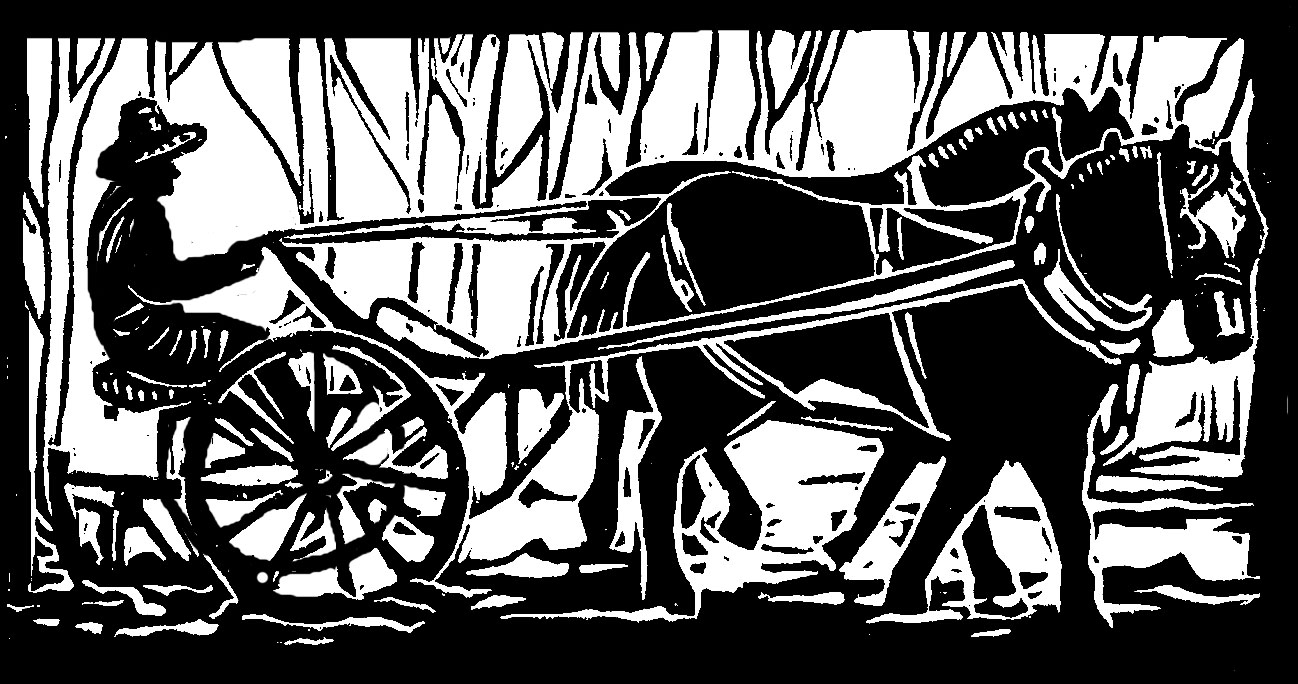This has been a long, wild winter of wind, and snow, and ice, and of course, for a New England vegetable farmer, dreams of spring and the fine farming season that is surely ahead.
But spring has not quite arrived, and a winter farmer who really wants to dream can always read some farming books in front of the friendly wood stove. First, there is Atina Diffley's Turn Here Sweet Corn: Organic Farming Works, a memoir about vegetable farming in the Midwest. The book starts with an enormous hail storm in June, followed by stories of tornadoes and deluges of rain, with crops ruined and bills rising.
Oh hee, hee, hee. What a cheerful book for a vegetable farmer to read! Happily, I do know more of the story, thanks to a recent farm conference hosted by the Cheshire County Conservation District, and featuring the author Atina Diffley herself, a very funny, practical, energetic person. Despite debts and storms, her farm was a success, and now she travels the country, telling her story, teaching farm efficiency, food safety, and marketing techniques, and generally encouraging farmers to keep on. All the farmers in the audience nodded, including my fellow farmer and me. We can use all the encouragement we can get.
Home again, my fellow picked up his next winter book: The Lean Farm, by Ben Kilham, which is a practical guide to more productivity and less waste on the small farm. (Turns out Kilham is speaking at the NOFA-NH conference this month. We are attracting some big farming stars here in New Hampshire!)
I go on to my next book too: Epitaph for a Peach by David Mas Masumoto. Masumoto is a third generation Japanese-American farmer, who grows peaches and grapes in California, and is transitioning from conventional to organic methods. His is a meditative book, about how to make a living and honor the natural world at the same time. Much to the bewilderment of his farming neighbors, Masumoto plants cover crops, including wildflowers. As he writes, “I know that pretty fields are very much part of my annual profits” (229).
Yes, I would agree: pretty fields, pretty horses, and pretty vegetables, too.
James Rebanks is another third generation farmer, this time a shepherd in England's Lake District, working with his grandfather and father and his own children, and a whole lot of (probably very pretty) sheep. His genuine affection for the land and the sheep and the work are not diminished by the fact that he has to get an off-the farm job to keep farming, and The Shepherd's Life: Modern Dispatches from an Ancient Landscape is a glimpse into a fascinating world, considerably different from this New Hampshire vegetable farmer's.
Farm City: The Education of an Urban Farmer is even farther afield, by topic if not location: it is the very funny story of growing a garden in an Oakland California ghetto. Novella Carpenter is “squatting” on an overgrown lot next to her apartment building, and she raises vegetables, chickens, turkeys, rabbits, and pigs, among the drug deals, gunshots, and her homed and homeless friends and neighbors. Carpenter dumpster-dives behind high-end restaurants to feed her critters, learns to butcher and make sausage, and offers her food to the whole neighborhood, meanwhile finding both the absurd and the sacred in it all.
From the Midwest to England to California, and I am still farm-traveling in Deeply Rooted: Unconventional Farmers in the Age of Agribusiness, which offers the stories of three small, independent farmers: an African-American dairy farmer in Texas, a Native American beef rancher in New Mexico, and a white heirloom wheat/vegetable farmer in North Dakota. These are fascinating profiles of strong characters, who keep farming in the face of multiple obstacles, many stemming from the giant farm agri-business model, as opposed to small farm agri-culture.
Closer to home again, I loved Goatsong, by Brad Kessler, writing out of Vermont. This is another beautiful and meditative book, about herding goats and making goat cheese, all the while considering the bells from the monastery across the way. Kessler, tending his goats, ponders the spiritual life and farming, as well as the way the land and plants and animals and humankind are intertwined.
Finally, all the way back in New Hampshire, I am enjoying Noel Perrin's collections of essays, beginning with First Person Rural: Essays of a Sometime Farmer, published in 1978. Perrin is a city to farm transplant, and is kind, gently humorous, and self-deprecating. He can make an essay about various makes of pick-up trucks or tractors as interesting as an essay about making maple syrup or building fence. Now that's an achievement, in my opinion, as farm machinery is not where my farming heart lies.
“Where does it lie exactly?” my fellow farmer asks, as we both surface from our respective books. “Right here, on this farm? With me, your fellow farmer?”
“Right here in these books!” I say, laughing. “Reading about farming is almost more fun than farming!”
Then we both laugh, and we imagine all the farmers, all over the world, laughing with us.
Originally published in the Monadnock Shopper News, Mar 13 - Mar 19, 2019
